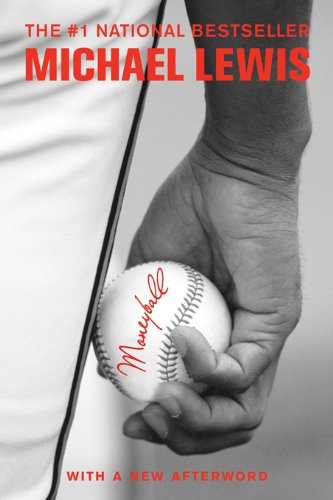

This article is an excerpt from the Shortform summary of "Moneyball" by Michael Lewis. Shortform has the world's best summaries of books you should be reading.
Like this article? Sign up for a free trial here .
Who was Art Howe, and what did he do in Moneyball? How did Art Howe contribute to the A’s season, and what was his relationship like with Billy Beane?
Art Howe, Oakland A’s Manager, clashed with Billy Beane over the idea of sabermetrics and Beane’s over-management of the team. Art Howe was eventually hired by another ball club, but Howe’s Oakland management was both contentious and successful.
Art Howe and Billy Beane
Billy has no intention of watching the game the night of the A’s 20th straight win, as is his standard practice. Like with the Jason Giambi homecoming game, there is no point in getting emotionally invested in the outcome of a single match. A baseball GM assembles a team for the long haul of a 162-game season. Worrying about one game, no matter its symbolic importance, is akin to a casino manager worrying about the outcomes of individual pulls of the slot machine or draws at the blackjack table.
Billy has created a team composed of players whom he regards highly because of their strong statistical performances in meaningful categories over long periods of time. In the long run of the regular season, he believes that they will meet their statistical destiny. But, of course, anything can happen in a single game.
But Billy is unable to resist the temptation watch the A’s go for their 20th straight win. During the game, he finds it difficult to keep his emotions in check. When the A’s roar out to an 11-0 lead in the game, the crowd is ecstatic and Billy is elated. The team’s 20th straight victory seems assured. But bit by bit, the commanding lead evaporates. And as it does, Billy the cold, calculating GM gives way to Billy the emotional volcano, liable to explode at any time.
Clearly, he is highly emotionally invested in this one game, even if he knows he shouldn’t be. After all, the model he and DePodesta had put together shows that the team needs to win 95 games to earn a postseason berth. Ninety-five wins means 67 losses, and tonight might just be one of those 67. But it is impossible for Billy to detach himself from the symbolic importance of this game. He begins criticizing the performances of individual players and calling into question the decisions of manager Art Howe in Moneyball, with whom he frequently clashes (Howe also resents Billy’s micromanaging of the A’s and feels he lacks the on-field deference customarily granted to managers).
Miguel Tejada is a shortstop whom Billy has hounded for making flashy, acrobatic plays instead of less glamorous, but tactically sound ones. On this night, Tejada tries and fails to get a runner out at home plate instead of going after the runner on third base. The risky play fails to produce any outs and cuts the Oakland lead to 11-6. Billy is frustrated, claiming that players like Tejada “try to do more than they should.” Later, Billy calls Howe’s impulsive decision to take first Bradford and then Rincon out of the game as “a fucking embarrassment.” As the Royals rally to tie the game at 11-11, Billy begins hurling objects around the clubhouse in frustration.
At the bottom of the ninth inning, with the score tied, Scott Hatteberg, Billy Beane’s reclamation project, steps up to the plate. With the score tied, Hatteberg has the opportunity to win the game in a walk-off. True to his patient hitting style, Hatteberg vows to himself that he will not swing at anything in the strike zone unless he has two strikes against him, after which he has little choice but to swing. He will grind the pitcher down as much as he can, looking for either a weak pitch or an opportunity to earn a walk.
Happily for Hatteberg and the A’s, he doesn’t need to wait that long. On the second pitch, Hatteberg takes a swing at a fastball and belts it out of the park for a game-winning, history-making home run, as the A’s clinch their 20th consecutive victory. Billy Beane will try to pass off the game as no different than any other, but of course, it isn’t. Billy may operate as a calculating, asset-trading GM, but he is still, at heart, driven by passion and emotion.
An Opportunity Declined and Art Howe Removed
Billy Beane is surprisingly calm in the wake of his team’s playoff disappointment. He knows that what he has accomplished with the A’s on a shoestring budget is extraordinary. He is frustrated by the media commentary, which seems inordinately focused on how a team fares in the playoff crapshoot rather than the real test of its mettle during the regular season, but he knows he cannot change this.
What he can change is the makeup of his team, to prepare it for success in 2003. One of his first moves is to get rid of manager Art Howe in Moneyball. He persuades the Mets to hire Howe, taking his hefty $2 million salary off the books, and he promotes one of the assistant coaches to the manager position. And in the A’s organization, the manager is more of a symbolic role: Billy will be calling all the shots.
By this time, the smart team owners around the league see the merit of the Oakland philosophy. Value-driven methods can put a winning team on the field, leading to higher revenue from ticket sales and television viewing figures—all at minimal expense. The year before, in fact, the owner of the Toronto Blue Jays had hired the A’s director of player development, J.P. Ricciardi, as the Blue Jays’ GM, hiring him right on the spot. Ricciardi, who had learned at the feet of Beane and Paul DePodesta, begins remaking the Blue Jays along similar lines, bringing in a team of outside analysts and number-crunchers and shedding team payroll in a drive for sabermetric efficiency.
Art Howe’s role was defined by his clashes with Billy Beane. Art Howe’s Oakland management role was given to another manager in the organization, even though Beane was the one calling the shots.

———End of Preview———
Like what you just read? Read the rest of the world's best summary of Michael Lewis's "Moneyball" at Shortform .
Here's what you'll find in our full Moneyball summary :
- How Billy Beane first flamed out as a baseball player before becoming a general manager
- The unconventional methods the Athletics used to recruit undervalued players
- How Sabermetrics influences American baseball today






